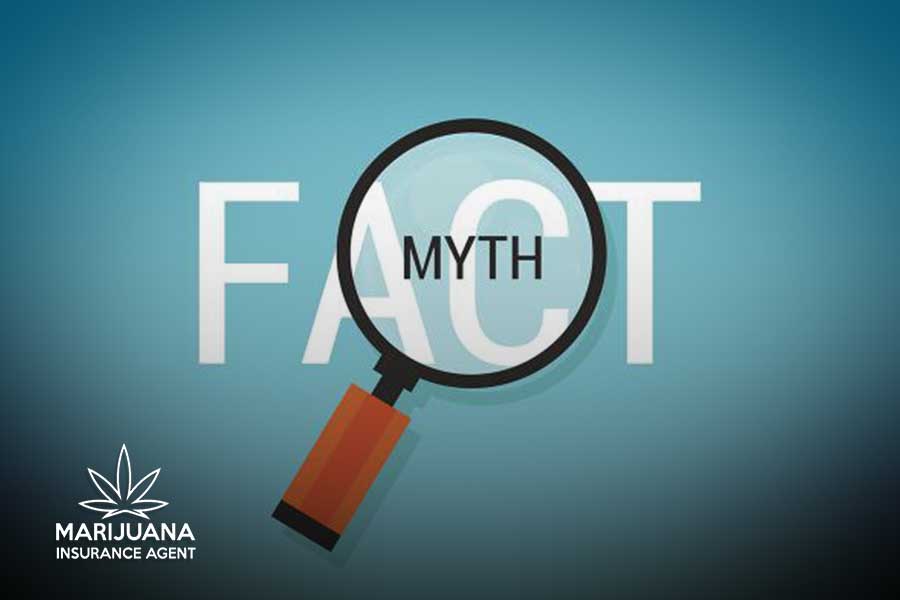Cannabis has gone from completely illegal to somewhat permissible to a fully regulated industry in many states. Much has changed, but a few myths persist about cannabis business insurance.
These are the top 3 insurance myths we keep hearing from clients:
Myth 1. No Insurance Carrier Works with Cannabis Businesses
While the broader insurance market isn’t on board for insuring cannabis-related businesses, there are insurance coverage options out there for cannabis. Businesses in the cannabis industry can (and should) get the standard coverage options as any other company would, no matter what stage of the product pipeline your business operates.
Insurance isn’t just there to placate regulators; it is your last line of defense when the unthinkable has happened. Did your property get damaged? Did your equipment breakdown? There’s property and equipment insurance coverage for that. Did someone slip and fall on your property? General liability has you covered.
For farmers, crop insurance is key. Both indoor and outdoor cultivation are eligible for coverage, although outdoor coverage can be more difficult to obtain.
But will an insurance provider pay out a cannabis claim? This is major concern for cannabis businesses. It’s one thing to have coverage; it’s another to be able to make a successful claim with your insurance provider. While the concern is understandable, we have seen claims from cultivators be approved and paid. So much can go wrong with a crop: bacteria build up, mold, fungi, traces of pesticides, bad weather, etc. Crop insurance can provide peace of mind for the worried farmer.
Myth 2: My Landlord Will Cover My Losses
There are a couple problems with this myth.
- Your landlord’s policies probably only cover the landlord’s losses. For example, they may have property insurance, but that only covers their own property. Not yours. Tenant improvements to the property (adjustments and work a business put into a property) are also not likely to be covered by a landlord’s policy.
- Your landlord may not have a cannabis-specific insurance coverage policy, which means that any claim made on the insurance is unlikely to be paid and could even lose the landlord their insurance policy altogether.
Be sure to review your lease agreement for insurance coverage provided by the landlord (if any) and the insurance coverage that you are required to have as a tenant. Share the language of any coverage requirements with your insurance agent so they can be sure that you are getting the coverage you need to operate.
Myth 3: Not All Cannabis Companies Need Product Liability Insurance
Product liability kicks in if a customer claims they experienced negative side-effects or were injured as a direct result of using your product. “But that doesn’t apply to my business,” you might say. “I don’t sell finished products.” Think again.
Being anywhere on the supply chain, even marketing and labeling, means you could be included in a lawsuit if one is filed. That means insurance agents want to make sure that not only your company is insured, but also that all your vendors are as well. You might see your insurance policy canceled until all your vendors get adequate product liability coverage. Insurance is all about managing risk, and one policy bearing the load of a whole supply chain is not the kind of risk most carriers want to take.

Leave A Comment